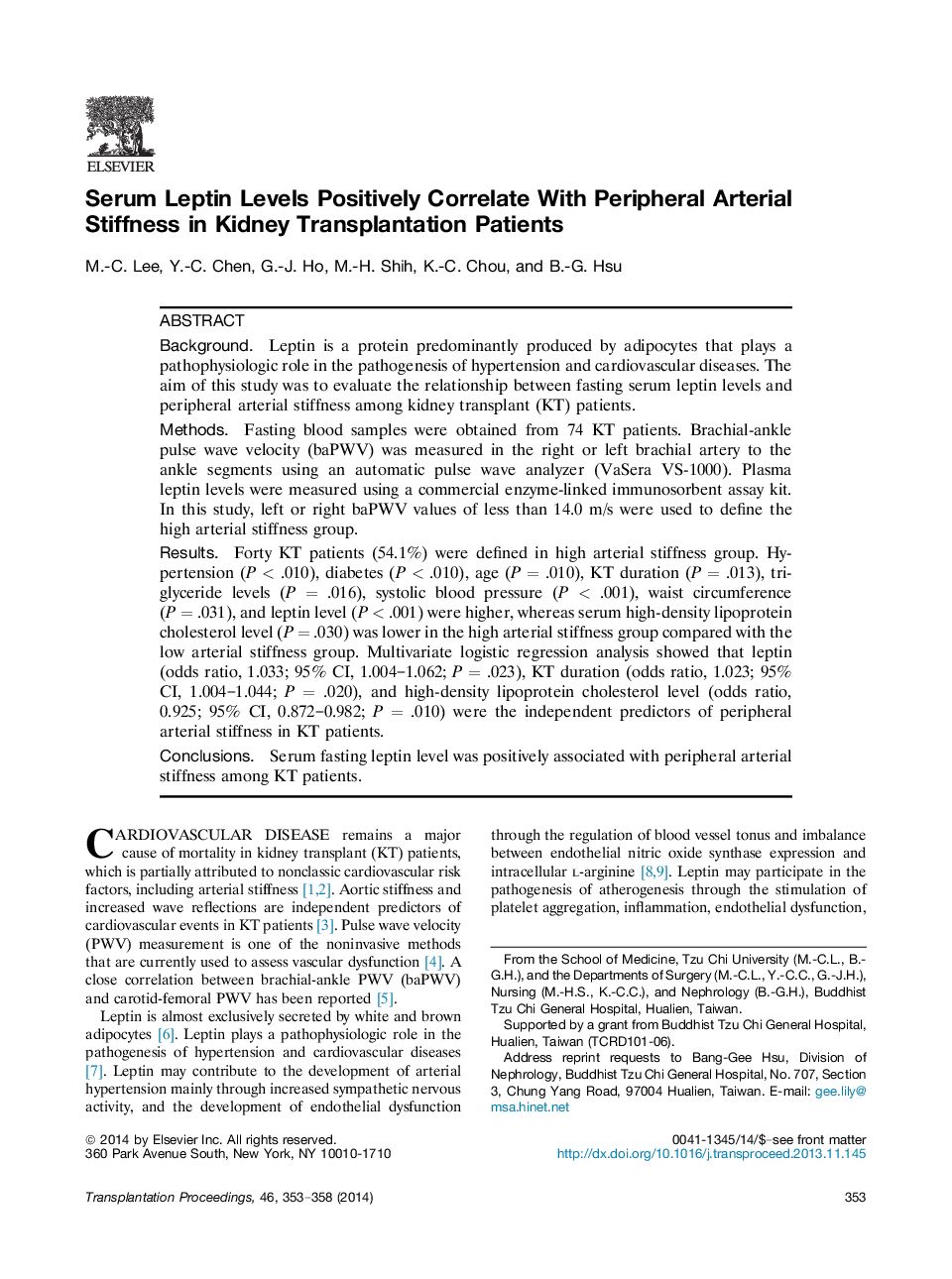| Article ID | Journal | Published Year | Pages | File Type |
|---|---|---|---|---|
| 4258733 | Transplantation Proceedings | 2014 | 6 Pages |
BackgroundLeptin is a protein predominantly produced by adipocytes that plays a pathophysiologic role in the pathogenesis of hypertension and cardiovascular diseases. The aim of this study was to evaluate the relationship between fasting serum leptin levels and peripheral arterial stiffness among kidney transplant (KT) patients.MethodsFasting blood samples were obtained from 74 KT patients. Brachial-ankle pulse wave velocity (baPWV) was measured in the right or left brachial artery to the ankle segments using an automatic pulse wave analyzer (VaSera VS-1000). Plasma leptin levels were measured using a commercial enzyme-linked immunosorbent assay kit. In this study, left or right baPWV values of less than 14.0 m/s were used to define the high arterial stiffness group.ResultsForty KT patients (54.1%) were defined in high arterial stiffness group. Hypertension (P < .010), diabetes (P < .010), age (P = .010), KT duration (P = .013), triglyceride levels (P = .016), systolic blood pressure (P < .001), waist circumference (P = .031), and leptin level (P < .001) were higher, whereas serum high-density lipoprotein cholesterol level (P = .030) was lower in the high arterial stiffness group compared with the low arterial stiffness group. Multivariate logistic regression analysis showed that leptin (odds ratio, 1.033; 95% CI, 1.004–1.062; P = .023), KT duration (odds ratio, 1.023; 95% CI, 1.004–1.044; P = .020), and high-density lipoprotein cholesterol level (odds ratio, 0.925; 95% CI, 0.872–0.982; P = .010) were the independent predictors of peripheral arterial stiffness in KT patients.ConclusionsSerum fasting leptin level was positively associated with peripheral arterial stiffness among KT patients.
